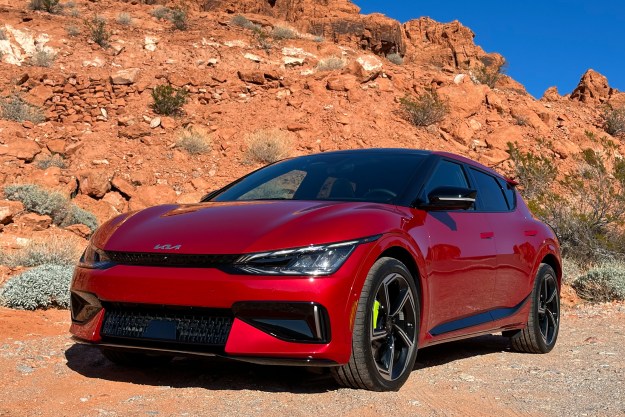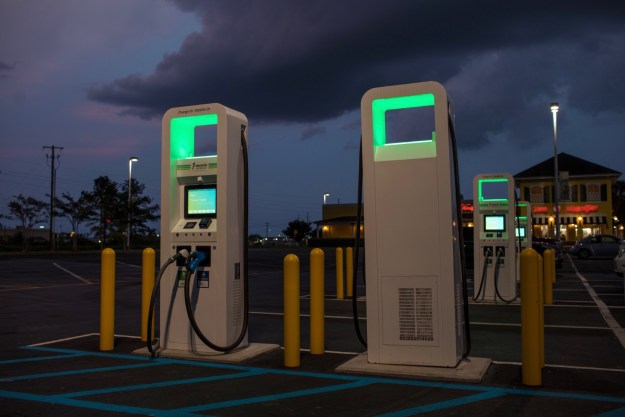Ford and Chevrolet are arch rivals in almost all areas of automobiledom, but what about electric cars?
At the 2015 Detroit Auto Show, General Motors showed off the Chevy Bolt, an electric car with 200 miles of range range priced under $40,000. It’s already gotten the green light for production.
Now, it appears Ford may pick up Chevy’s gauntlet and build a 200-mile electric car of its own.
That car could even be unveiled before the end of this year, according to Automobile.
Details are scant, but it seems more likely that Ford will unveil this mystery electric car at the Frankfurt or Los Angeles auto show this fall; the 2015 New York Auto Show’s April opening might present too small of a window.
Ford hasn’t been particularly enthusiastic about electric cars so far.
It sells the Focus Electric, but only in small numbers and without much apparent interest in growing them. Hybrids and plug-in hybrids have been the Blue Oval’s green weapons of choice.
Maybe the Ford-Chevy rivalry is enough to overcome that inertia. There’s no telling when the Ford electric car will go into production, but the Bolt is expected to start production as soon as next year, although it may not go on sale until 2017.
Both Ford and Chevy will also have to contend with the Tesla Model 3, Tesla’s much-anticipated mainstream model. The company claims a similar 200-mile range and $35,000 sticker price before any government incentives. The Model 3 may not launch until after the Bolt.
Nissan isn’t discussing details of its next-generation Leaf, but it wouldn’t be surprising to see a significant range boost to help the Japanese car maintain parity with the Americans.
In other words, it looks like electric-car buyers will have a lot more choice in two or three years’ time.
Editors' Recommendations
- Fake engine noises in electric cars need to die
- Bold style alone can’t muscle Chevy’s new Blazer EV to the head of its class
- Affordable is not enough. Here’s what Chevy’s new Bolt needs to nail
- Ford EV drivers can use 12,000 Tesla Superchargers starting in 2024
- What are the different types of electric car chargers?


